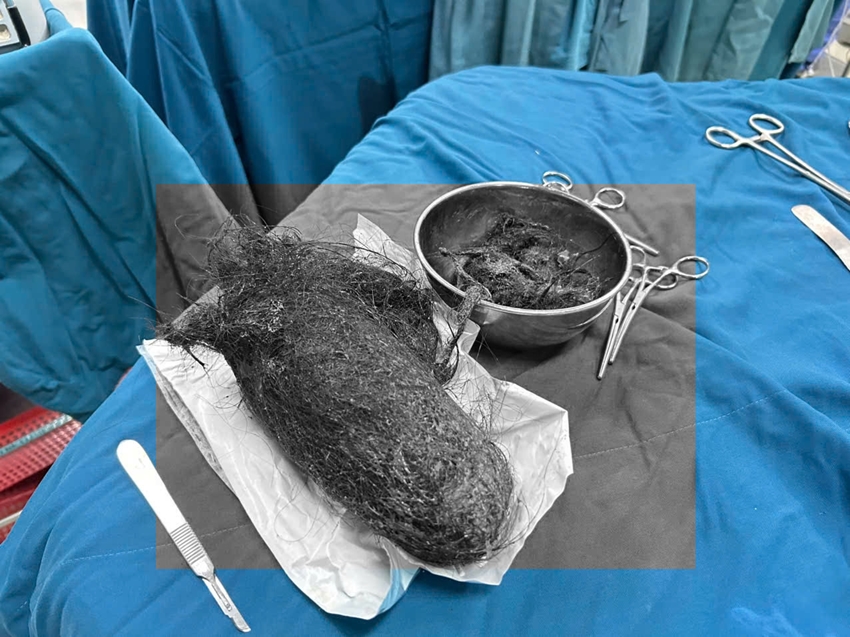After blood tests, an abdominal X-ray, and a digestive endoscopy, doctors diagnosed her with gastrointestinal bleeding, digestive bleeding due to duodenal and gastric ulcers, and a hairball in the stomach.
The child immediately underwent surgery to have the object removed. Doctors successfully extracted the massive hairball that almost filled the girl’s stomach.
After the surgery, the child was closely monitored in the intensive care unit, where she was kept on a liquid diet and given intravenous nutrition. Her health has since stabilized.
Medical records show that eating hair, or trichophagia, is a rare eating disorder often associated with the Rapunzel syndrome, where indigestible hair accumulates in the stomach, leading to serious health issues.
Trichophagia typically occurs in children and adolescents, especially those with obsessive-compulsive disorder, anxiety disorders, or trichotillomania (hair-pulling disorder).
 |
| The extracted hairball weighed nearly 1 kilogram, a result of prolonged hair ingestion. Photo: HB |
The causes of trichophagia may be linked to psychological and neurological factors.
Some children engage in hair eating as a self-soothing behavior, particularly when stressed or anxious. Additionally, nutritional deficiencies may lead children to chew on non-food objects.
The consequences of trichophagia are dangerous as when hair accumulates in the stomach, it can cause intestinal blockage, gastric ulcers, and even intestinal perforation.
Common symptoms include abdominal pain, nausea, weight loss, and prolonged digestive disorders.
In many cases, surgery is the only option to remove the hairball.
Parents need to detect their children’s behavior of eating hair early in order to provide timely psychological treatment./.